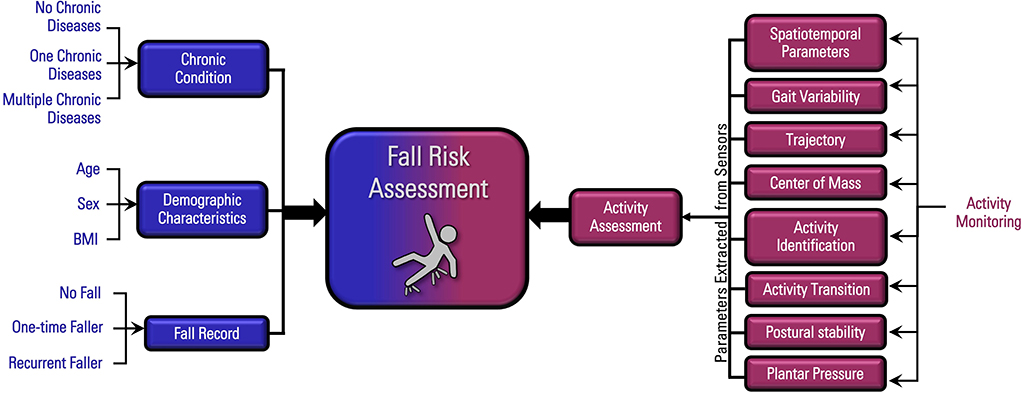The Buzz on Dementia Fall Risk
The Buzz on Dementia Fall Risk
Blog Article
The 7-Second Trick For Dementia Fall Risk
Table of ContentsDementia Fall Risk - An OverviewSome Ideas on Dementia Fall Risk You Need To KnowThe Best Guide To Dementia Fall RiskDementia Fall Risk Things To Know Before You BuyGet This Report about Dementia Fall Risk
You could be worried due to the fact that you have actually had a loss prior to or since you have actually discovered you're beginning to really feel unstable on your feet. You may have discovered modifications to your health and wellness, or just seem like you're decreasing a little. Whatever the factor, it isn't unusual to become cautious and lose confidence, and this can stop you doing the things you made use of to do and make you really feel a lot more isolated.If you've had a loss or you have actually begun to feel unsteady, inform your doctor even if you really feel great otherwise. Your doctor can examine your balance and the means you stroll to see if enhancements can be made. They may have the ability to refer you for a drops risk analysis or to the falls prevention solution.
This info can be acquired with interviews with the person, their caretakers, and a review of their clinical documents. Begin by asking the specific regarding their history of falls, including the regularity and circumstances of any type of current falls. Dementia Fall Risk. Ask about any flexibility issues they might experience, such as unsteady or difficulty strolling
Conduct a complete review of the person's medications, paying certain interest to those recognized to boost the risk of drops, such as sedatives or medications that reduced high blood pressure. Figure out if they are taking multiple medicines or if there have actually been recent adjustments in their medicine regimen. Evaluate the individual's home environment for prospective risks that might enhance the threat of falls, such as poor illumination, loosened rugs, or lack of grab bars in the restroom.
Fascination About Dementia Fall Risk
Guide the person with the fall threat analysis kind, clarifying each inquiry and tape-recording their reactions properly. Calculate the overall threat rating based on the actions given in the evaluation type.
Routinely check the individual's progression and reassess their danger of falls as required. Offer recurring education and assistance to promote safety and security and minimize the risk of falls in their everyday living activities.
Numerous studies have shown that physical therapy can assist to reduce the threat of dropping in grownups ages 65 and older. In a new study (that looked at drops risk in ladies ages 80 and older), scientists determined the economic effect of picking physical therapy to avoid falls, and they discovered that doing so conserves $2,144, including all the concealed costs of your time, discomfort, missed life events, and the dollars paid for solutions.
The Greatest Guide To Dementia Fall Risk
Examining your heart rate and blood pressure measurements at rest and while you alter placements (from resting or lying to standing). A basic test of your thinking (cognitive) abilities. Examining your equilibrium, toughness, and walking ability. A simple vision examination. Assessing your feet and footwear. A home security evaluation. Based upon the examination results, your physiotherapist will develop a strategy that is customized to your details demands.
Older adults that have problem strolling and speaking at the same time go to a higher risk of dropping. Dementia Fall Risk. To assist increase your safety and security during day-to-day activities, your physical specialist may design a training program that will test you to keep standing and strolling while you do an additional go to my site job. Instances consist of walking or standing while counting backwards, having a conversation, or carrying a bag of grocery stores
Your physical specialist additionally can recognize which tasks you ought to avoid to stay safe. Community-based drops prevention programs assist people to: Lower their concern of dropping. Set goals for increasing their exercise. Make their homes safer. Work out much more to boost their stamina and balance. These programs like it commonly are led by volunteer coaches.
Things about Dementia Fall Risk

Measles, or rubeola, is a very infectious, acute viral contagious disease brought on by the measles infection. Some go individuals think of measles as just a rash and high temperature that cleans up in a few days; nevertheless, measles can cause significant health issues, particularly in children younger than 5-years-old. The most effective security versus measles is the measles, mumps, and rubella (MMR) vaccine.
Falls are an usual reason of injury amongst older grownups.
Dementia Fall Risk for Dummies

She has a medical background of seizure disorder and hypertension. She is receiving an IV infusion and taking Gabapentin and Lasix. She has no background of falls, her stride is consistent, and she voids without any problems. The previous registered nurse states that she calls for aid to the shower room when she needs to go.
Instances of common loss interventions/measures consist of: Guaranteeing a patient's necessary things are within reach. Beyond comprehending just how to use the Johns Hopkins Autumn Risk Analysis Device, it's essential that facilities include its use into an extra extensive autumn avoidance plan.
Report this page